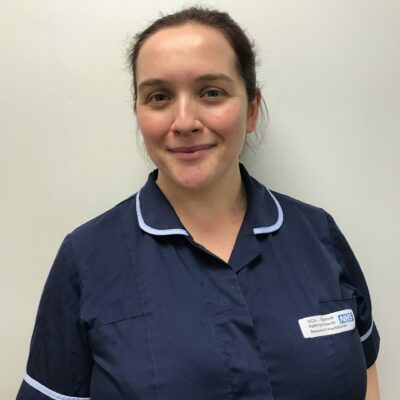Monday 4 December 2023
Bringing a Different Perspective and Skillset to Patient Care
by Kathryn Slevin
Research Delivery Lead at the NIHR Manchester Clinical Research Facility, Salford Royal Hospital
If you want to leave work every day knowing what you’ve done really matters, the NHS is the right place.
Research is a key and everyday part of patient care and there’s now a huge array of professional roles involved in delivering studies, in addition to Principal Investigators and Research Nurses.
Clinical Research Practitioners are a relatively new addition and because their role can include so many different skills, they haven’t always been fully appreciated as the specialists they are.
Professional network
I joined the NHS as a Band 4 Research Practitioner and Lab Technician in 2016. After progressing to Band 5 and then 6, I became one of the first group of CRPs to join the CRP Accredited Register, accredited by the Professional Standards Authority and supported by the National Institute for Health and Care Research and the Academy for Healthcare Science. I was keen to demonstrate the value of the role and to join a professional network to develop my career.
I’ve since progressed to be the Research Delivery Lead for neurology and musculoskeletal disorders across NCA, managing around 20 colleagues and overseeing more than 100 studies, from Phase 1 to 4. Earlier this year we recruited the first patient in Europe to a study for people with myotonic dystrophy, a genetic disorder that causes progressive muscle weakness and wasting, which was a real landmark for the team and for Salford Royal as one of the host sites for the NIHR Manchester Clinical Research Facility.
Blazing a trail
It’s still quite rare for Research Practitioners to become Delivery Leads and I’m proud that NCA is blazing a trail with me and my colleague Bethan Charles, who leads the Inpatient Research Delivery Team.
Research Practitioners can come from all sorts of backgrounds, including administrative roles, so there isn’t one single route through but there are lots of relevant courses as well as the Accredited Register. This means you can develop your skills and gain leadership experience as a crucial part of the future workforce.
I came to clinical research after working in forensic science, so I bring scientific skills to the team and have written lab manuals for studies, for instance, and SOPs (standard operating procedures) for processing samples, as well as caring for patients in a slightly different way from traditional roles.
Knowing that studies we deliver feed into improved diagnosis, treatment and care is really gratifying and motivating and I’m also happy that I’m able to bring a different skillset and perspective as part of patient care.
It is challenging at times but learning new skills while working in supportive teams and knowing that my input is appreciated by colleagues as well as patients is really satisfying.

